第24章 CROSS CURRENTS(2)
And with a growing irritation and querulousness on her part came a further disenchantment, born of the inability of husband and wife to find a common ground of interest. The habits and migrations of the sand grouse, the folklore and customs of Tartars and Turkomans, the points of a Cossack pony--these were matter which evoked only a bored indifference in Vanessa. On the other hand, Clyde was not thrilled on being informed that the Queen of Spain detested mauve, or that a certain Royal duchess, for whose tastes he was never likely to be called on to cater, nursed a violent but perfectly respectable passion for beef olives.
Vanessa began to arrive at the conclusion that a husband who added a roving disposition to a settled income was a mixed blessing. It was one thing to go to the end of the world; it was quite another thing to make oneself at home there. Even respectability seemed to lose some of its virtue when one practised it in a tent.
Bored and disillusioned with the drift of her new life, Vanessa was undisguisedly glad when distraction offered itself in the person of Mr. Dobrinton, a chance acquaintance whom they had first run against in the primitive hostelry of a benighted Caucasian town. Dobrinton was elaborately British, in deference perhaps to the memory of his mother, who was said to have derived part of her origin from an English governess who had come to Lemberg a long way back in the last century. If you had called him Dobrinski when off his guard he would probably have responded readily enough; holding, no doubt, that the end crowns all, he had taken a slight liberty with the family patronymic. To look at, Mr. Dobrinton was not a very attractive specimen of masculine humanity, but in Vanessa's eyes he was a link with that civilisation which Clyde seemed so ready to ignore and forgo. He could sing "Yip-I-Addy" and spoke of several duchesses as if he knew them--in his more inspired moments almost as if they knew him. He even pointed out blemishes in the cuisine or cellar departments of some of the more august London restaurants, a species of Higher Criticism which was listened to by Vanessa in awe-stricken admiration. And, above all, he sympathised, at first discreetly, afterwards with more latitude, with her fretful discontent at Clyde's nomadic instincts. Business connected with oil-wells had brought Dobrinton to the neighbourhood of Baku; the pleasure of appealing to an appreciative female audience induced him to deflect his return journey so as to coincide a good deal with his new aquaintances' line of march. And while Clyde trafficked with Persian horse-dealers or hunted the wild grey pigs in their lairs and added to his notes on Central Asian game-fowl, Dobrinton and the lady discussed the ethics of desert respectability from points of view that showed a daily tendency to converge. And one evening Clyde dined alone, reading between the courses a long letter from Vanessa, justifying her action in flitting to more civilised lands with a more congenial companion.